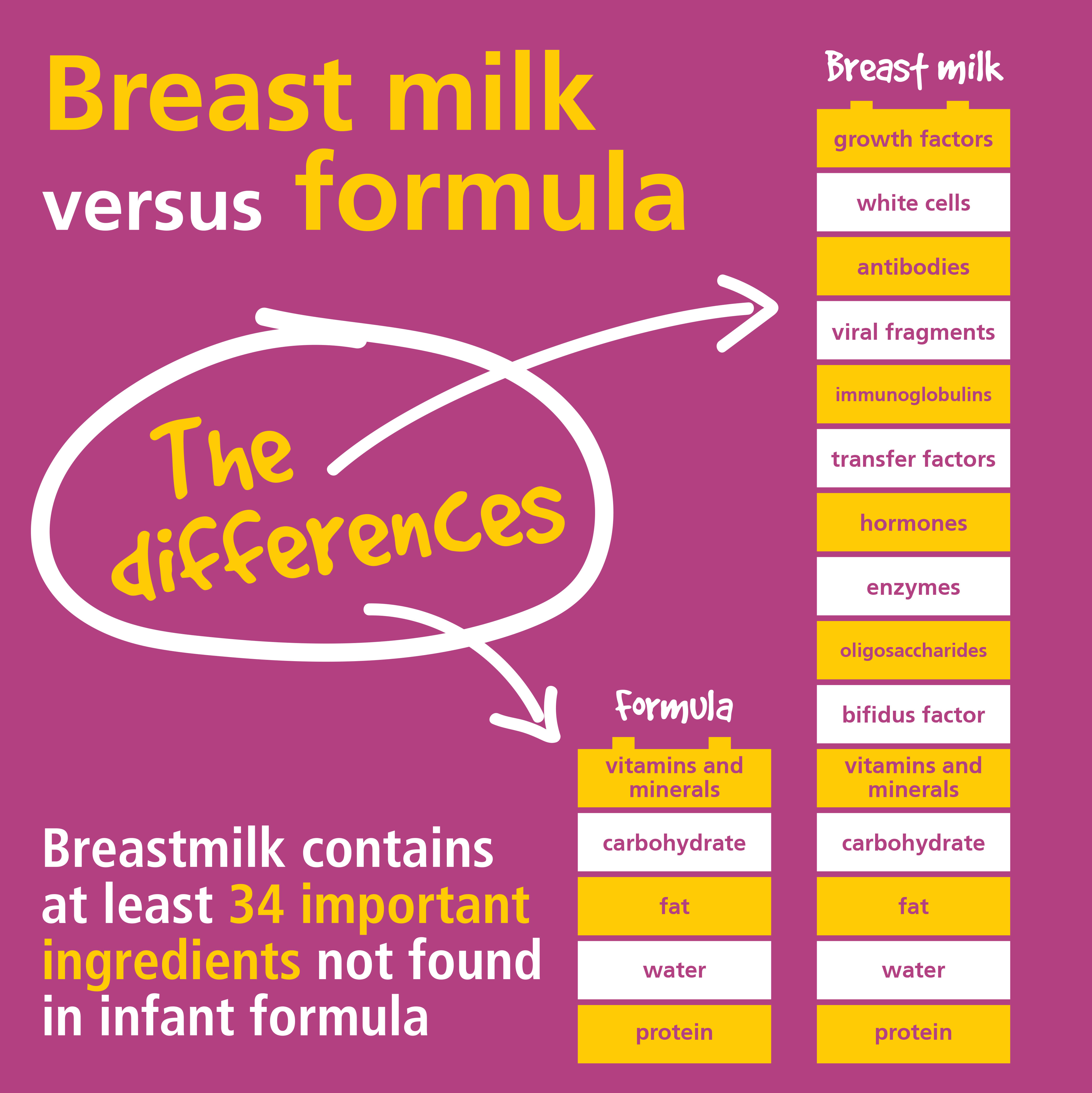Breastmilk has everything a baby needs. It contains water, vitamins, minerals, fats and carbohydrates for nutrition. It also contains additional substances which aren’t found in formula milk: hormones, growth factors, immunological factors, protective factors and essential fatty acids help the baby grow, sleep, and fight infection and disease.

Breast milk has an amazing ability to change to give your baby exactly what they need. The first milk you make after giving birth is called colostrum.
It is very concentrated and packed full of antibodies and immune cells, boosting your baby’s immune system from birth.
Milk changes from colostrum to mature milk over the first few days. You might leak milk don’t worry if you don’t notice anything, this isn't a sign you don't have enough milk for your baby.
Your milk changes to suit your baby’s needs. If a baby is sick, the milk will have antibodies to help fight infection. On a hot day, your milk will be more watery to quench your baby's thirst.
This is all a baby will need until they are six months and then women can continue to breastfeed alongside introducing solids.
Not only does breastmilk change as the baby gets older but it changes from feed to feed.
Formula milk is the best alternative to breastmilk if a mum chooses to, or needs to, bottle feed. Formula milk is usually made from cow’s milk. Regular cow’s milk can’t be digested by babies so the milk has to be altered first. Other ingredients such as soy protein and fish oils are added for nutrition. For more information on formula milk please see UNICEF’s guide to bottle feeding.
Breastmilk is:
- free and convenient: you don’t need formula milk, bottles, teats or sterilising equipment
- always available, with the right ingredients at the right temperature, so it’s easier to feed at night or on the go
- it’s environmentally friendly because there’s no manufacturing, packaging or waste.
Breastfeeding also helps:
- you form a bond with your baby
- everyone get more sleep, as you don’t have to get up at night to prepare bottles plus breastfeeding releases hormones that make you and your baby feel sleepy.
There are many benefits to breastfeeding, listen to some mums and dads from Medway describe their favourite things about breastfeeding.
Breastfeeding makes a difference to you and your baby every day.
